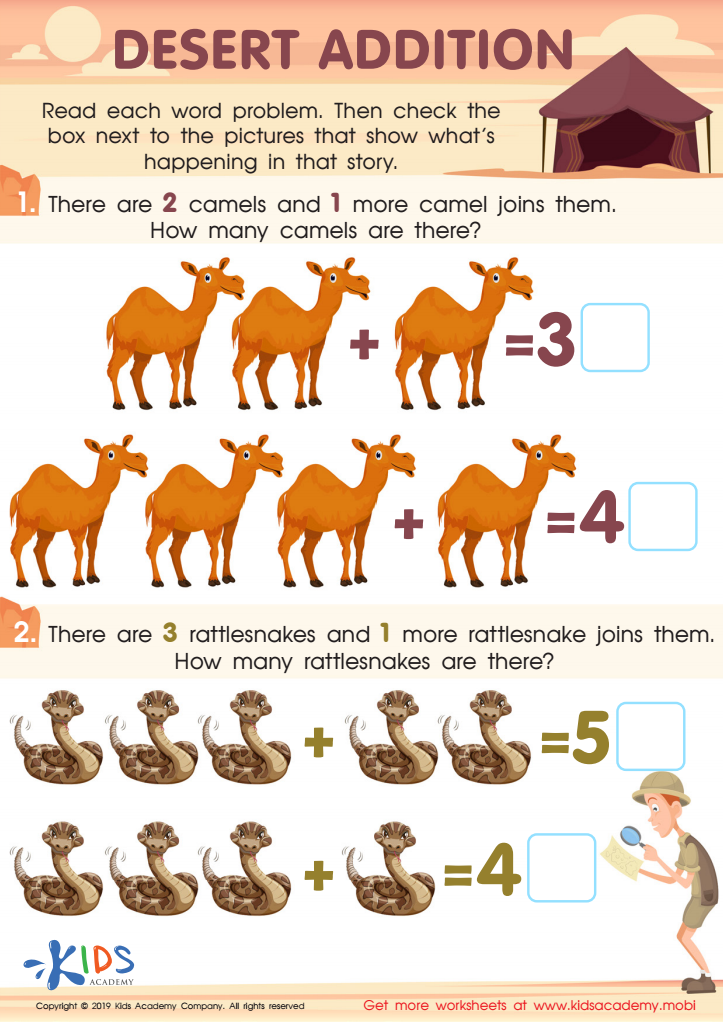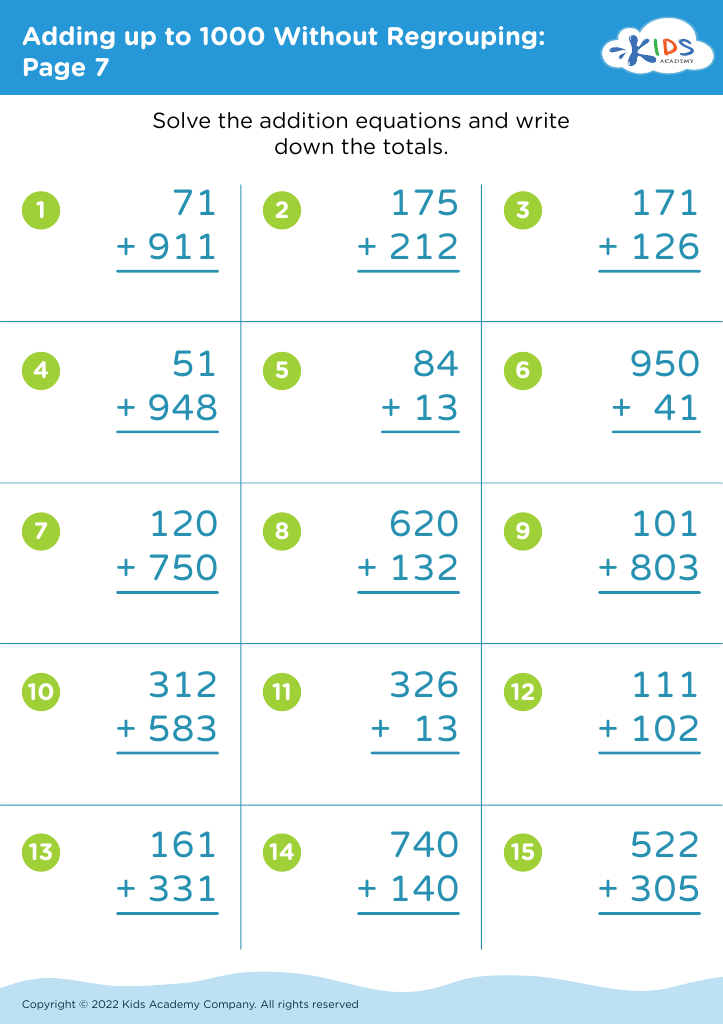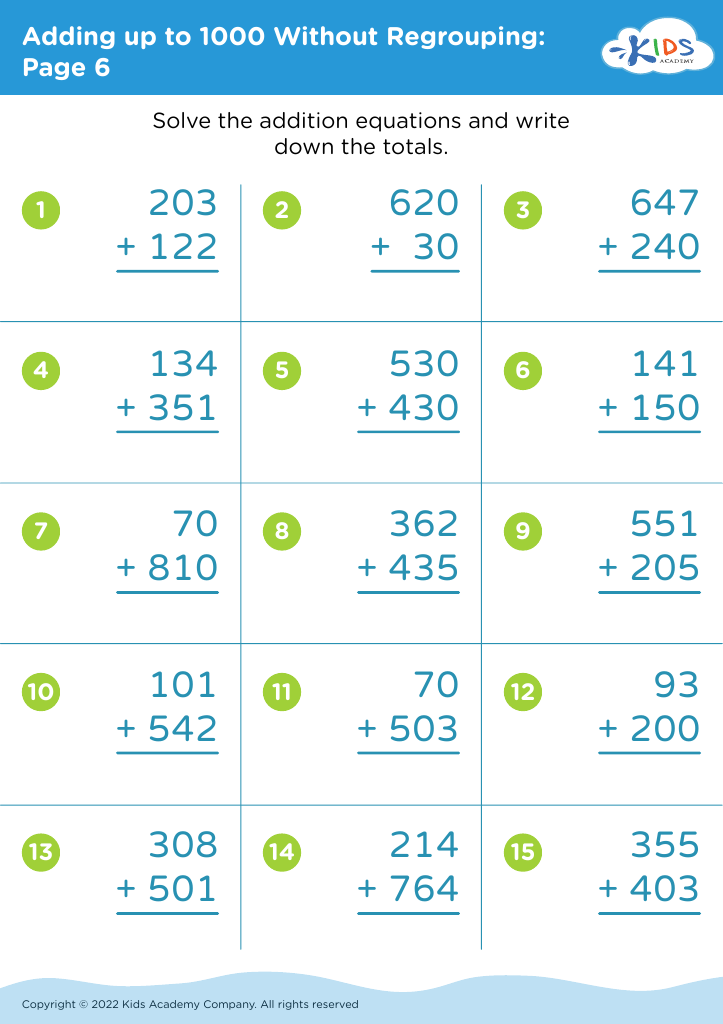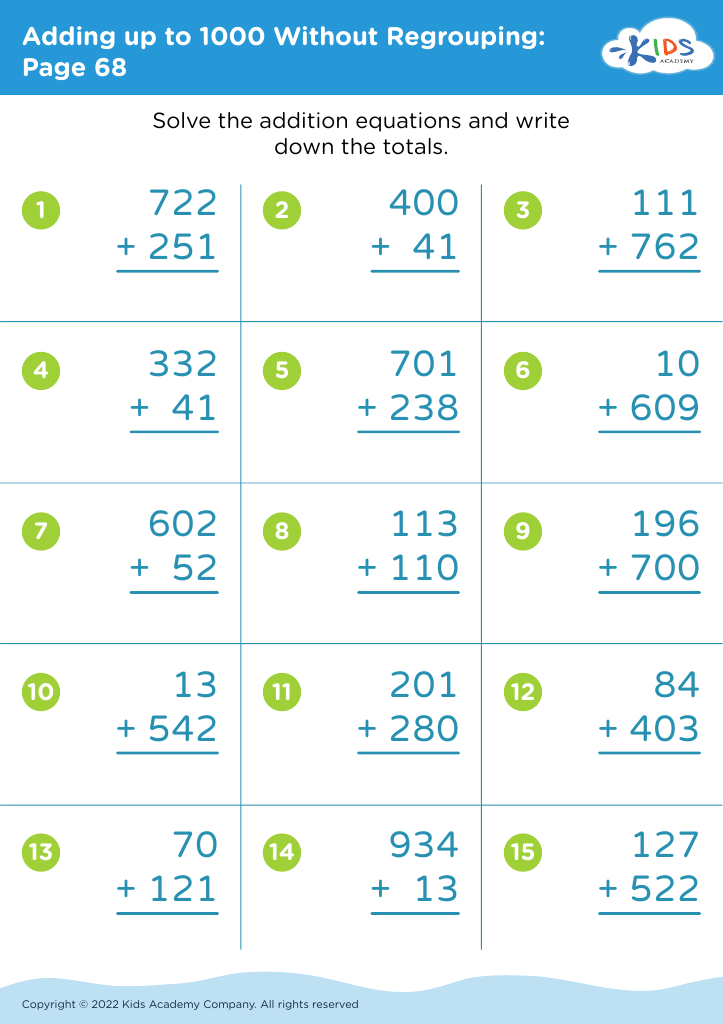Improving counting skills Addition Worksheets for 9-Year-Olds
5 filtered results
-
From - To
Welcome to our collection of "Improving Counting Skills Addition Worksheets" designed specifically for 9-year-olds. These engaging, printable worksheets help young learners master counting through a variety of fun activities. By reinforcing fundamental math concepts with exciting exercises, children will develop their addition skills in an interactive manner. Our worksheets provide step-by-step guidance, allowing kids to practice counting objects, solving addition problems, and recognizing number patterns. As children progress through these thoughtfully crafted resources, they'll gain confidence and competence in math. Perfect for classroom reinforcement or home practice, these worksheets make learning fun and effective! Start your child’s math journey today!


Desert Addition Worksheet
Improving counting and addition skills in 9-year-olds is crucial for several reasons, and both parents and teachers play a significant role in this development. At this age, children are transitioning from concrete to abstract mathematical thinking. Solid counting and addition skills serve as the foundation for more advanced mathematics, such as multiplication, division, and problem-solving. When children master these basic concepts, they gain confidence in tackling more complex tasks.
Enhancing counting and addition skills also supports cognitive development. Math is interconnected with everyday life; understanding numbers helps children make sense of their world. Skills in counting support tasks like telling time, managing money, and measuring lengths, which are essential life skills.
Additionally, strong arithmetic abilities correlate with academic success across subjects. In a collaborative learning environment, parents and teachers working together can reinforce these skills through diverse methods, such as games, real-life situations, and engaging activities.
By prioritizing counting and addition skills, parents and teachers foster not only math proficiency but also critical thinking, perseverance, and resilience. Ultimately, nurturing these skills during this formative stage leads to a positive attitude toward learning, setting the stage for lifelong academic success.

 Assign to My Students
Assign to My Students



















